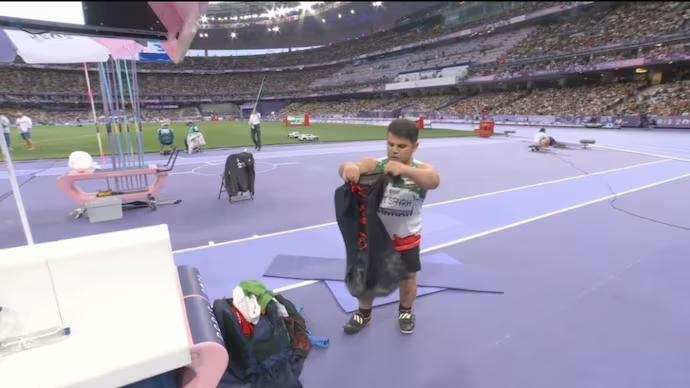Iranian athlete Sadegh Beit Sayah was disqualified from the javelin final at the 2024 Paris Paralympics after initially securing the gold medal with a throw of 47.64 meters. This decision, which came as a shock, resulted from a violation of the International Paralympic Committee’s (IPC) code of conduct, specifically Rule 8.1 concerning unsporting behavior.
The disqualification appears to stem from Beit Sayah’s display of a black religious flag during his victory celebration. While the IPC has not fully clarified the specific details of the misconduct, reports suggest that the flag bore religious symbols and may have been interpreted as violating regulations on maintaining neutrality and sportsmanship at the event. This rule emphasizes fair play and prohibits conduct that could be seen as politically or religiously motivated.
The incident not only resulted in Beit Sayah losing his gold medal but also elevated India’s Navdeep Singh, who had thrown 47.32 meters, from silver to gold, marking a historic achievement for India in the Paralympics. Iran has reportedly appealed the decision, arguing that Beit Sayah had previously shown a similar flag at the 2020 Tokyo Paralympics without repercussions.
This controversy has sparked debates, with some criticizing the decision, viewing it as an infringement on the athlete’s right to express personal beliefs, while others have pointed out the need for strict adherence to international sporting rules to ensure neutrality and fair competition




